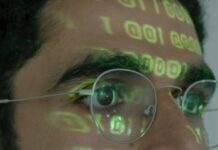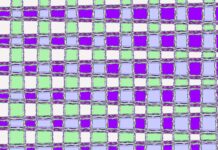OpenSea stands as a prominent figure in the burgeoning realm of non-fungible tokens (NFTs), carving out a niche as one of the largest and most diverse decentralized marketplaces for digital assets on the blockchain. Founded in 2017 by Alex Atallah and Devin Finzer, OpenSea has become a central hub for creators, collectors, and enthusiasts to buy, sell, and trade a wide array of NFTs, spanning digital art, collectibles, virtual real estate, domain names, and more. As an open and permissionless platform, OpenSea empowers creators to tokenize their digital assets as NFTs and list them for sale without the need for approval or intermediaries, democratizing access to the burgeoning NFT economy and fostering a vibrant community of creators and collectors worldwide.
At its core, OpenSea operates as a decentralized marketplace built on blockchain technology, providing users with a secure, transparent, and censorship-resistant platform to transact digital assets peer-to-peer. By leveraging blockchain technology, OpenSea ensures the authenticity, provenance, and ownership rights of NFTs, enabling users to buy, sell, and trade digital assets with confidence and trust. Each NFT listed on OpenSea is represented by a unique cryptographic token on the Ethereum blockchain, carrying metadata that includes information about the asset, its creator, its ownership history, and any associated royalties or licensing terms.
OpenSea’s user-friendly interface and intuitive browsing experience make it easy for users to discover, explore, and engage with a diverse range of digital assets available on the platform. Users can browse curated collections, explore trending NFTs, or search for specific assets based on categories, keywords, or filters. Additionally, OpenSea provides tools and features for creators to mint, list, and manage their NFTs, allowing them to set pricing, royalties, and licensing terms, as well as track sales, royalties, and ownership transfers in real-time.
As a decentralized marketplace, OpenSea operates on the principles of transparency, inclusivity, and decentralization, with no central authority or gatekeepers controlling the platform. Instead, OpenSea relies on smart contracts deployed on the Ethereum blockchain to facilitate peer-to-peer transactions and enforce the rules and terms of engagement for buyers and sellers. This decentralized architecture ensures that users maintain full control over their digital assets and transactions, without relying on intermediaries or centralized servers that could be subject to censorship or manipulation.
OpenSea’s commitment to decentralization extends to its governance model, which allows users to participate in the decision-making process and shape the future direction of the platform. Through community-driven initiatives, proposals, and voting mechanisms, users can voice their opinions, suggest improvements, and contribute to the development and evolution of OpenSea’s features, policies, and ecosystem. This inclusive approach fosters a sense of ownership and belonging within the OpenSea community, empowering users to take an active role in shaping the platform’s growth and success.
One of the key features that sets OpenSea apart from other NFT marketplaces is its support for a wide range of digital assets and blockchain networks. While Ethereum remains the dominant blockchain for NFTs, OpenSea has expanded its support to include other blockchain networks, such as Polygon, Klaytn, Tezos, and Flow, enabling users to transact digital assets across different ecosystems and communities. This interoperability and multi-chain support reflect OpenSea’s commitment to accessibility, scalability, and inclusivity, as well as its recognition of the diverse needs and preferences of users in the rapidly evolving NFT landscape.
In addition to its primary marketplace, OpenSea offers a suite of tools, resources, and services to support creators, collectors, and developers in the NFT ecosystem. These include analytics and insights for tracking market trends and asset performance, educational content and tutorials for newcomers to the NFT space, and developer tools and APIs for building applications and integrations on top of the OpenSea platform. Furthermore, OpenSea collaborates with artists, brands, and organizations to host exclusive drops, auctions, and events, showcasing unique and limited-edition NFTs and fostering engagement and community interaction.
Looking ahead, OpenSea continues to innovate and expand its offerings, with plans to enhance its user experience, scale its infrastructure, and introduce new features and functionalities to meet the evolving needs of its growing user base. With its mission to empower creators, collectors, and enthusiasts to participate in the decentralized digital economy, OpenSea remains at the forefront of the NFT revolution, driving adoption, innovation, and democratization in the world of digital assets and blockchain technology.
As OpenSea continues to grow and evolve, it faces a range of challenges and opportunities in the dynamic landscape of NFTs and blockchain technology. One of the key challenges for OpenSea is scalability, as the platform grapples with increasing demand, transaction volumes, and network congestion on the Ethereum blockchain. To address this challenge, OpenSea is exploring solutions such as layer 2 scaling solutions, which can improve transaction throughput and reduce gas fees while maintaining the security and decentralization of the Ethereum network.
Interoperability is another area of focus for OpenSea, as the platform seeks to expand its support for additional blockchain networks and standards beyond Ethereum. By embracing interoperability, OpenSea aims to offer users greater flexibility and choice in how they create, transact, and interact with digital assets across different ecosystems and communities. This includes exploring cross-chain bridges, standards, and protocols that enable seamless interoperability and asset portability between different blockchain networks.
Security and trust are paramount in the NFT space, and OpenSea is committed to maintaining the integrity and safety of its platform for users. This involves implementing robust security measures, such as smart contract audits, vulnerability assessments, and best practices for securing user accounts and digital assets. Additionally, OpenSea educates users about potential risks and scams in the NFT space and provides resources for protecting themselves against fraud, phishing, and other security threats.
Regulatory compliance is another area of concern for OpenSea, as the platform navigates the evolving regulatory landscape surrounding NFTs, cryptocurrencies, and decentralized finance (DeFi). As governments and regulatory agencies around the world develop frameworks for regulating digital assets and blockchain technology, OpenSea collaborates with industry stakeholders, legal experts, and policymakers to ensure compliance with applicable laws and regulations while preserving the decentralized nature of its platform.
Community engagement and support are fundamental to OpenSea’s success, and the platform is dedicated to fostering a vibrant and inclusive community of creators, collectors, and enthusiasts. Through initiatives such as community forums, social media channels, and developer meetups, OpenSea provides opportunities for users to connect, collaborate, and share knowledge and experiences. Additionally, OpenSea offers customer support and assistance to users, addressing questions, concerns, and feedback in a timely and transparent manner.
As OpenSea continues to innovate and iterate on its platform, it remains committed to its core values of openness, decentralization, and empowerment. By providing a decentralized marketplace for digital assets, OpenSea enables creators to monetize their work, collectors to acquire unique and valuable assets, and enthusiasts to participate in the decentralized digital economy. With its vision of a world where anyone can create, own, and trade digital assets freely and securely, OpenSea is poised to play a leading role in shaping the future of NFTs and blockchain technology.

















